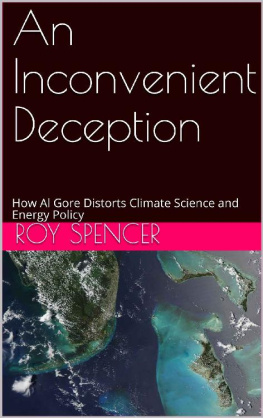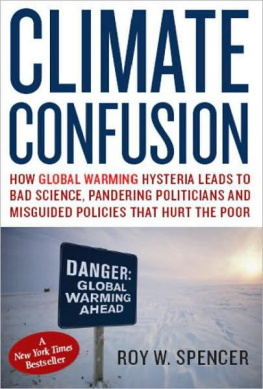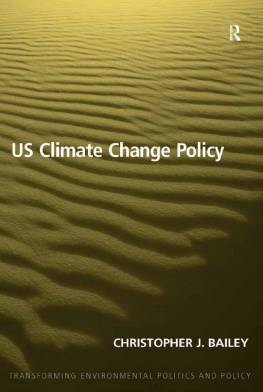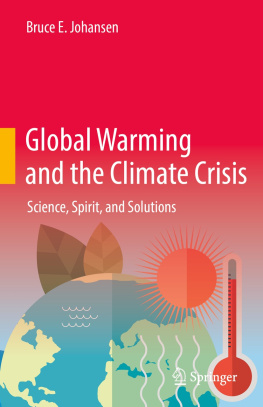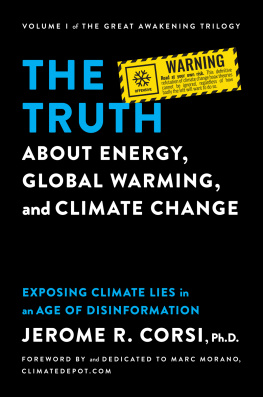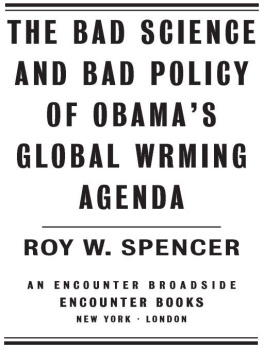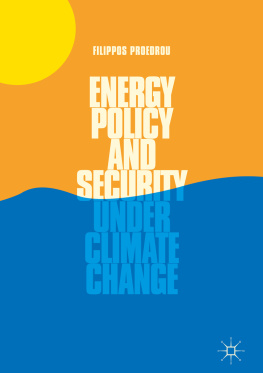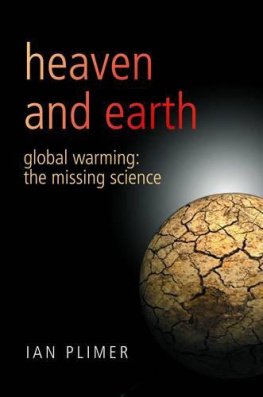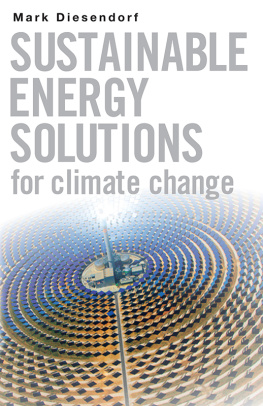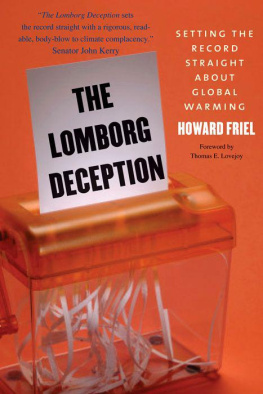Roy Spencer - An Inconvenient Deception - How Al Gore Distorts Climate Science and Energy Policy
Here you can read online Roy Spencer - An Inconvenient Deception - How Al Gore Distorts Climate Science and Energy Policy full text of the book (entire story) in english for free. Download pdf and epub, get meaning, cover and reviews about this ebook. genre: Art. Description of the work, (preface) as well as reviews are available. Best literature library LitArk.com created for fans of good reading and offers a wide selection of genres:
Romance novel
Science fiction
Adventure
Detective
Science
History
Home and family
Prose
Art
Politics
Computer
Non-fiction
Religion
Business
Children
Humor
Choose a favorite category and find really read worthwhile books. Enjoy immersion in the world of imagination, feel the emotions of the characters or learn something new for yourself, make an fascinating discovery.
- Book:An Inconvenient Deception - How Al Gore Distorts Climate Science and Energy Policy
- Author:
- Genre:
- Rating:3 / 5
- Favourites:Add to favourites
- Your mark:
An Inconvenient Deception - How Al Gore Distorts Climate Science and Energy Policy: summary, description and annotation
We offer to read an annotation, description, summary or preface (depends on what the author of the book "An Inconvenient Deception - How Al Gore Distorts Climate Science and Energy Policy" wrote himself). If you haven't found the necessary information about the book — write in the comments, we will try to find it.
By: Roy Spencer
ASIN: B074XG6KX1
Library of Congress Catalogue Card Number:
Publisher: Amazon Digital Services (2017)
Earth Sciences, Climatology, Politics,
Updated 2nd Edition: Al Gores new movie An Inconvenient Sequel: Truth to Power is reviewed for its accuracy in climate science and energy policy.
As was the case with Gores first movie (An Inconvenient Truth), the movie is bursting with bad science, bad policy and some outright falsehoods. The storm events Gore addresses occur naturally, and there is little or no evidence they are being made worse from human activities: sea level is rising at the same rate it was before humans started burning fossil fuels; in Miami Beach the natural rise is magnified because buildings and streets were constructed on reclaimed swampland that has been sinking; the 9/11 memorial was not flooded by sea level rise from melting ice sheets, but a storm surge at high tide, which would have happened anyway and was not predicted by Gore in his first movie, as he claims; the Greenland ice sheet undergoes melt every summer, which was large in 2012 but then unusually weak in 2017; glaciers advance and retreat naturally, as evidenced by 1,000 to 2,000 year old tree stumps being uncovered in Alaska; rain gauge measurements reveal the conflict in Syria was not caused by reduced rainfall hurting farming there, and in fact the Middle East is greening from increasing CO2 in the atmosphere; agricultural yields in China have been rising, not falling as claimed by Gore.
The renewable energy sources touted by Gore (wind and solar), while a laudable goal for our future, are currently very expensive: their federal subsidies per kilowatt-hour of energy produced are huge compared to coal, natural gas, and nuclear power. These costs are hidden from the public in increased federal and state tax rates. Gore is correct that it is right to save humanity, but what we might need saving from the most are bad decisions that reduce prosperity and hurt the poor.
About the Author:
Roy W. Spencer is a Principal Research Scientist at the University of Alabama in Huntsville. He was formerly a Senior Scientist for Climate Studies at NASA. He is co-developer of the original satellite method for precise monitoring of global temperatures from Earth-orbiting satellites. He has provided congressional testimony several times on the subject of global warming and authored the 2008 New York Times bestseller, Climate Confusion.
Roy Spencer: author's other books
Who wrote An Inconvenient Deception - How Al Gore Distorts Climate Science and Energy Policy? Find out the surname, the name of the author of the book and a list of all author's works by series.

